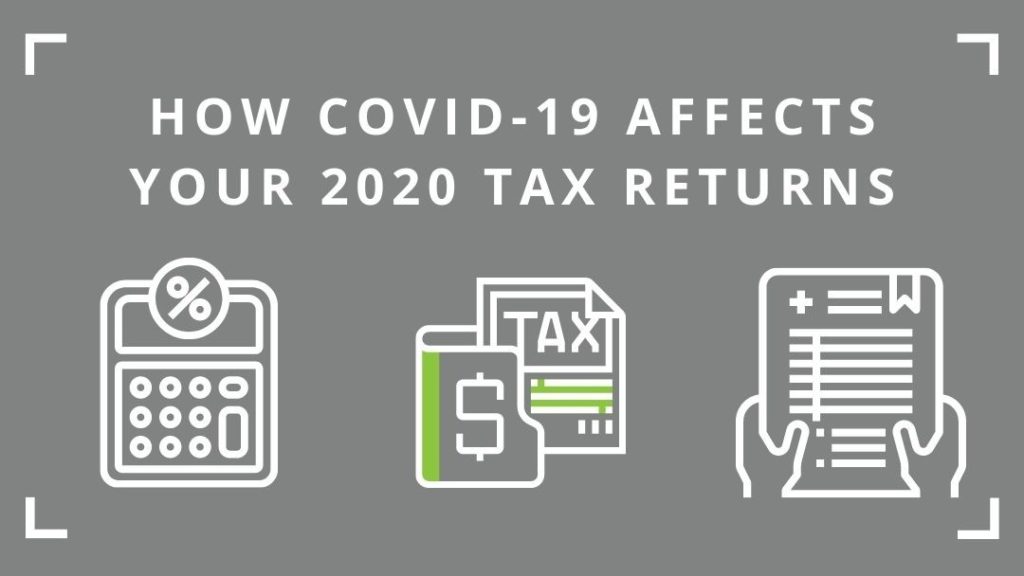How COVID-19 Affects Your Taxes

Do you know how COVID-19 impacts your taxes this year? Learn how unemployment benefits, stimulus checks, independent contractor work, and retirement account withdrawals all impact this tax season.
2020 brought countless changes such as financial strain, mental health obstacles, and physical challenges that many are still facing. Tax season means an opportunity for a potential financial boost to those negatively impacted by the pandemic.
Many tax filers rely on tax refunds to support daily expenses and their families. The importance of getting an accurate tax refund is crucial now more than ever because so many people need money to help pay their bills and buy groceries.
Unemployment Benefits
Many people received unemployment compensation because of the Coronavirus Aid, Relief and Economic Security (CARES) Act in 2020. Unemployment pay is considered taxable and must be reported on your income tax return according to the IRS.
Recipients should receive Form 1099-G, Government Payments, from their state tax agency either by mail or electronically. Form 1099-G reports the amount of unemployment compensation received and any federal income tax withheld.
For more information on unemployment compensation and accessing your 1099-G form visit SC Department of Employment and Workforce’s (SC DEW) site HERE.
In the newest stimulus package passed by Congress, the first $10,200 of unemployment benefits were made tax-free for people with incomes of less than $150,000. If you have already filed your tax return for 2020, you may have to file an amended return. The IRS has not yet issued any formal guidance for this change, but we’ll update this as more information is made available. Learn more HERE.
Economic Impact Payments (EIP)
Most Americans got an Economic Impact Payment (EIP), or stimulus check, in 2020. Fortunately, the stimulus checks are not considered taxable income. Any stimulus payments will not reduce your refund or increase the amount of tax you owe on your 2020 federal income tax return. Those who received an EIP will also receive Notice 1444, “Your Economic Impact Payment” to keep for your tax records.
If you did not receive a stimulus check or received a smaller amount than you expected, you may qualify for the Recovery Rebate Credit. You will need to claim the expected stimulus amount as a credit on your 2020 tax returns. This may be able to reduce your tax debt or increase your refund by the amount of stimulus payment you are owed.
For more resources on the Economic Impact Payment and eligibility, visit the Economic Impact Payment Information Center HERE.
Independent Contractors, Self-Employed and Freelancers
Many people picked up additional jobs that may qualify them as self-employed. Individuals who worked for companies such as Uber, Lyft, DoorDash, InstaCart, or other similar organizations will receive a form 1099-MISC (miscellaneous) or 1099-NEC. These forms are similar to a W-2 except it reports the total earnings from a company for independent contractors. You may receive more than one 1099-MISC depending on how many businesses you worked for during the year.
You will need to report 1099-MISC and 1099-NEC income on a Schedule C attachment to your tax return. Additionally, you have the option to claim deductions that relate to our job duties. For example, gas, car maintenance, and refreshments for clients. All deductions require filers to present receipts when completing their taxes.
Want to learn more about 1099–NEC forms? Click HERE.
Retirement Account Withdrawals
Some people had to pull money out of retirement accounts to help cover costs during the pandemic. The CARES Act allowed people to take a hardship withdrawal of up to $100,000 out of their traditional 401(k)s and IRAs. If this is your situation, you may not have to pay income taxes on your withdrawal. If you do have to pay taxes on the withdrawal, you have the option to pay taxes on the full withdrawal by the time you do your 2020 tax return.
Start Filing Early
Tax season officially starts on February 12, 2021. SC Thrive can help you file your own taxes from the comfort of your home, or wherever you have access to a computer and the internet. Using Thrive-Hub’s self-serve option, you can file any time of day on your own. Our system is secure and easy to use, so filing your taxes is simple.
You can also file with an SC Thrive Tax Counselor. Our Tax Counselors are trained individuals who can help you submit an accurate return to the IRS. Call our Contact Center over the phone at 800.726.8774 to learn more about connecting with a counselor in person. In-person tax filing is going to be more limited than years prior due to COVID-19 safety requirements pertaining to large gatherings.
In Summary:
-
Unemployment benefits are considered taxable income after the first $10,200. They must be included on your 2020 income statement.
-
Stimulus checks are not considered taxable income and will not reduce your refund or increase the amount of taxes you owe.
-
If you withdrew from a retirement account in 2020, you are not required to pay taxes for the first $100,000.
-
You can file your own taxes for free with SC Thrive if you meet some basic requirements. File on your own through Thrive Hub or with help from an SC Thrive Tax Counselor. You can learn more HERE.
